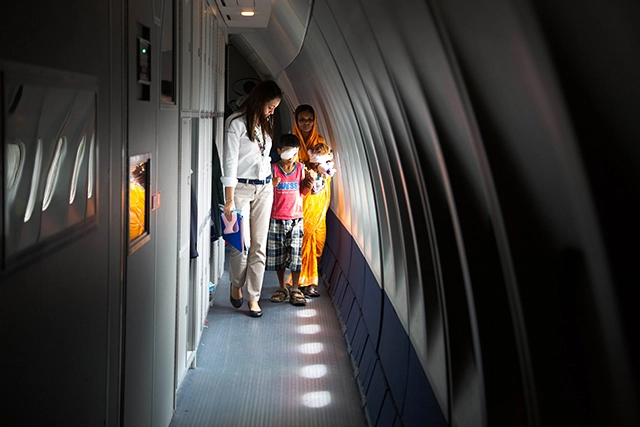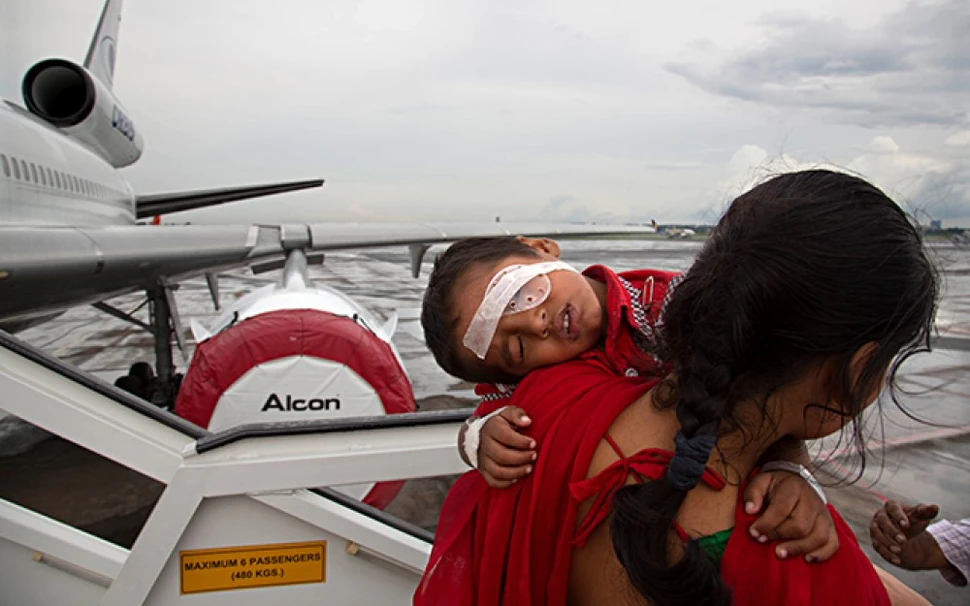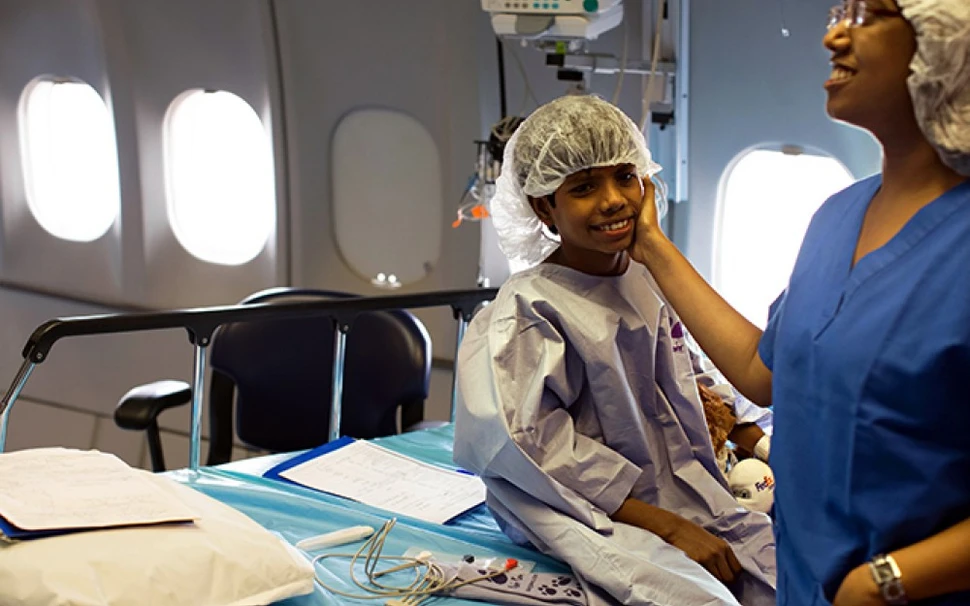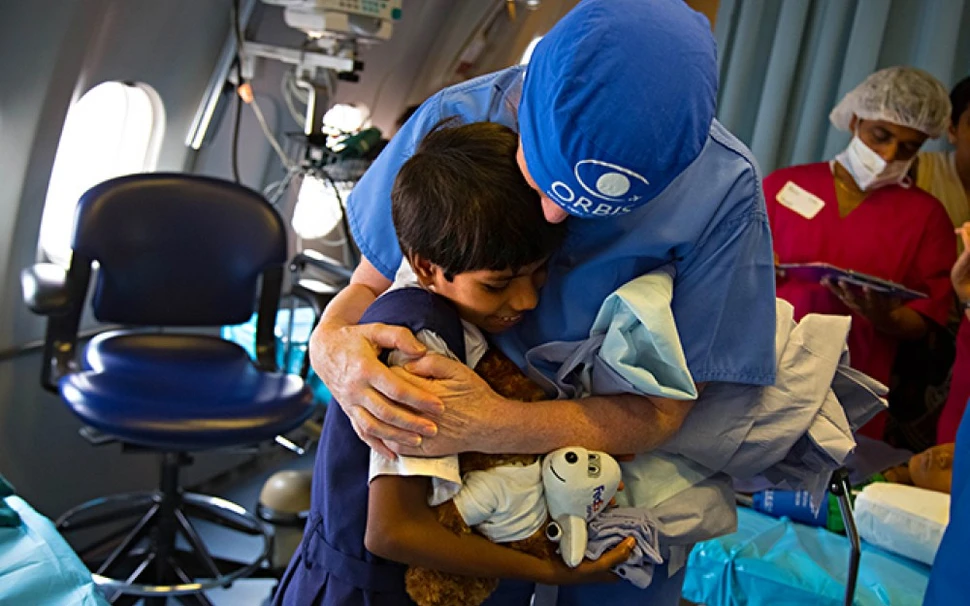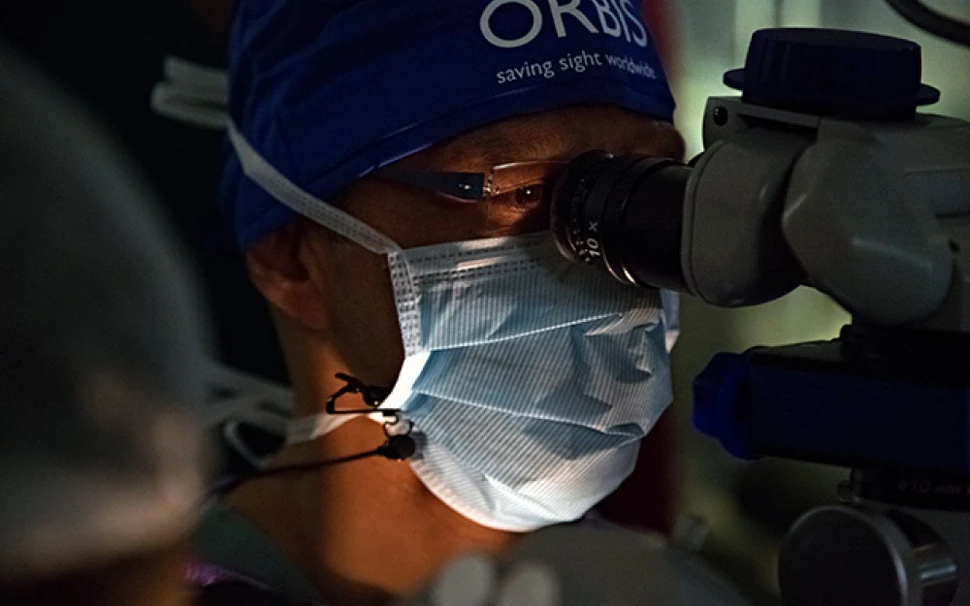All of them blind or nearly blind, they’ve journeyed by foot, by train and by bus from far-flung Indian villages to Kolkata for a chance to have their eyesight restored aboard Orbis’ legendary Flying Eye Hospital.
The eye surgeries and laser treatments they receive while the plane is parked at Kolkata’s bustling international airport will be nothing short of life-changing for them. But the work aboard the Flying Eye has the potential to help thousands of other patients as well.

